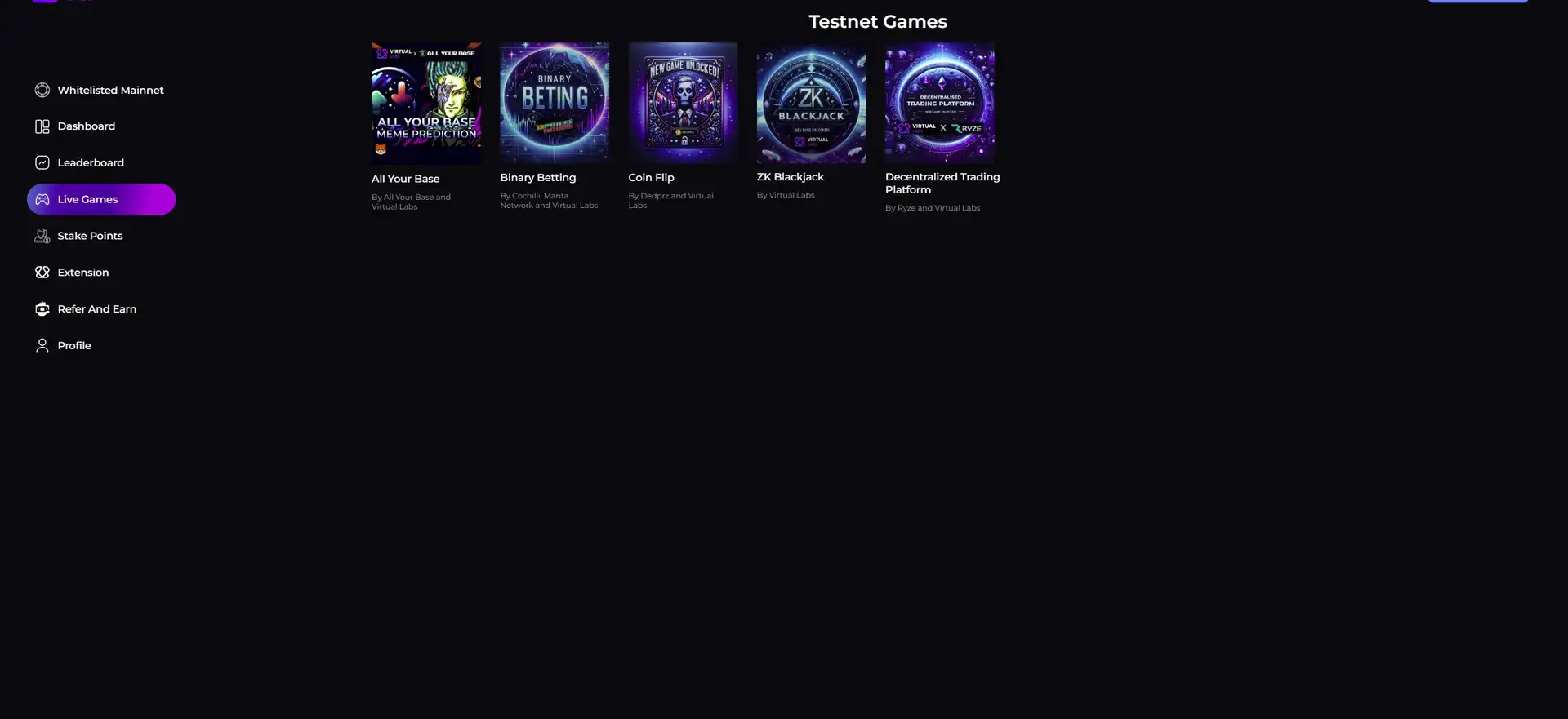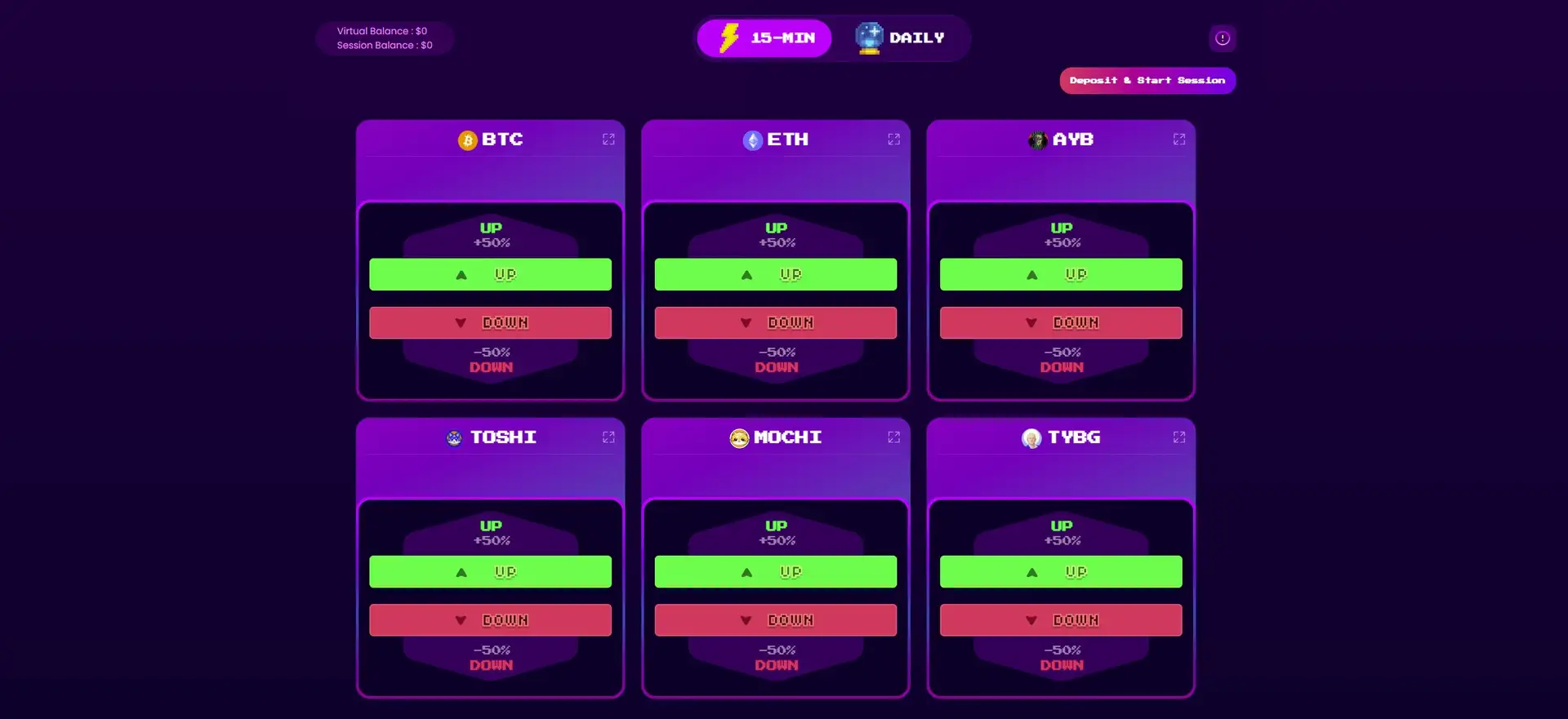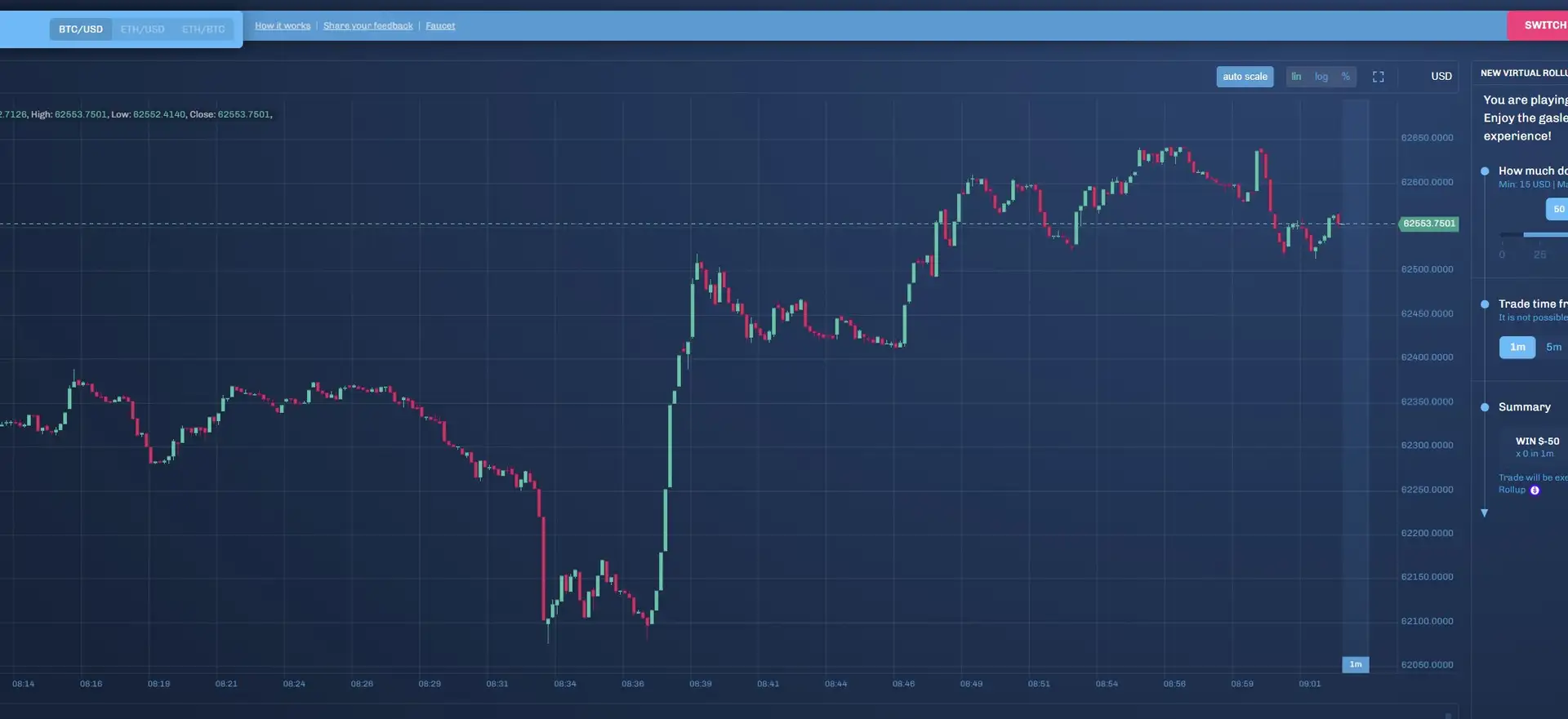About Virtual Labs
Virtual Labs is a blockchain startup founded in 2022, aimed at revolutionizing the Web3 ecosystem by eliminating gas fees, latency, and simplifying wallet interactions. Their key innovation lies in Zero Knowledge (ZK) state channels, which streamline transaction processes while maintaining strong security measures. With a focus on enhancing user experience, the company is dedicated to blurring the lines between Web2 and Web3, allowing users to interact with blockchain applications without realizing the underlying complexities of the blockchain itself.
Virtual Labs is led by José Betancourt, a Yale dropout who has successfully raised $1.4 million in seed funding. This funding round was backed by notable investors such as OP Crypto, Byzantine Marine, and NEAR Foundation. The platform is designed to make blockchain interactions smoother, which is essential for driving mainstream adoption. Their flagship product, Virtual Rollups, supports seamless transactions across multiple blockchains, improving efficiency and scalability across the decentralized space. For more detailed information, you can visit their official website here.
The vision of Virtual Labs is to enable fully on-chain gaming and decentralized applications (dApps) with zero friction, providing a seamless transition for Web2 users into the Web3 space. Founder José Betancourt believes that mainstream adoption will happen only when the blockchain becomes invisible to the end-user. By abstracting the complex cryptographic processes, developers can focus on building creative, functional applications without needing to worry about gas fees, latency, or wallet issues.
In particular, Virtual Rollups, their ZK state channel, has been designed to scale transactions exponentially across multiple chains while ensuring Byzantine fault tolerance for better security. With this technology, Virtual Labs addresses common challenges like high transaction fees and long processing times that have historically hindered the adoption of decentralized finance (DeFi) and NFT ecosystems. The elimination of bridging complexities between different blockchains further reduces latency and risk, making their solution ideal for gaming and financial applications.
Their goal is to simplify blockchain UX while maintaining robust security and efficiency. The launch of the Virtual Bridge SDK in November 2023 marked a significant milestone in their journey. This innovation enables engineers to deploy contracts on a single chain while allowing users to seamlessly interact with apps across different chains. The team continues to push for interoperability and ease of use, targeting a wide range of applications from gaming to decentralized finance (DeFi).
The development roadmap of Virtual Labs focuses on the progressive integration of its Virtual Rollups and Virtual Bridge technologies. After securing $1.2 million in pre-seed funding in 2023, the company has concentrated on improving its ZK state channels and expanding the number of supported blockchains. To date, they have integrated their technology with 13 different blockchains, significantly reducing transaction volumes and wait times on their testnets.
Key milestones include the launch of the Virtual Bridge SDK in November 2023, which allows decentralized applications to operate smoothly across multiple blockchains without the traditional risks associated with bridging. The SDK is currently available to partners, who are already implementing it to enhance cross-chain interoperability. This milestone supports their broader goal of bridging Web2 and Web3 technologies by allowing developers to deliver Web3 functionalities with Web2-like ease.
For further updates on their upcoming projects and innovations, please visit their roadmap.
Virtual Labs was founded by José Betancourt, a 21-year-old entrepreneur who left Yale to dedicate his time to the project. Betancourt's expertise in cryptographic protocols, combined with a vision for zero friction Web3 applications, has driven the company forward. He is joined by Dr. Alexander Atamanov, a cryptography Ph.D., and other international team members from institutions like Harvard, MIT, and Columbia.
The company's key investors include OP Crypto, Byzantine Marine, Koyamaki Ventures, and the NEAR Foundation, who collectively contributed to the $1.4 million seed round. These partnerships have allowed Virtual Labs to rapidly scale and integrate with multiple blockchain ecosystems.
For more information about the team and investors, visit the official website.
Virtual Labs has actively engaged in testnet operations to refine their Virtual Rollups and ZK state channels. Their testnet, which runs on Polygon, has shown impressive results, eliminating over three million transactions and saving over 100,000 minutes in waiting time for users. This significant reduction in transaction volumes is a testament to their technology's efficiency and scalability.
As for early access programs, Virtual Labs has been focusing on partnerships with selected developers and platforms, giving them priority access to their Virtual Bridge SDK before the public launch. Partners already integrated with Virtual Rollups are benefiting from enhanced transaction capabilities across multiple chains. Currently, access is limited to these early partners, with broader access expected as the platform continues to evolve.
Virtual Labs Suggestions by Real Users
Virtual Labs FAQ
Virtual Labs revolutionizes the Web3 space by leveraging Zero Knowledge (ZK) state channels, which eliminate gas fees, reduce latency, and simplify wallet interactions. This enables users to interact with decentralized applications in a seamless and cost-effective manner, without worrying about traditional blockchain complexities.
The Virtual Bridge SDK is a powerful tool that enables developers to deploy contracts on a single blockchain while allowing users to seamlessly interact with decentralized applications across multiple chains. It eliminates the need for complicated bridging mechanisms or divided liquidity, ensuring a smoother cross-chain experience for both users and developers.
Virtual Rollups are designed to facilitate unlimited transactions from a peer-to-peer network of participants, outpacing both traditional blockchains and centralized servers in terms of speed. By using ZK state channels, it not only ensures faster transaction processing but also enhances security through Byzantine fault tolerance.
On-chain gaming faces challenges like high fees, slow transaction speeds, and cumbersome interactions. Virtual Rollups solve these issues by providing fast, cost-effective, and secure transactions using ZK state channels. This allows developers to create real-time multiplayer games on the blockchain, with the performance of Web2 gaming platforms.
Virtual Labs is contributing to mainstream Web3 adoption by simplifying blockchain interactions through their ZK state channels and Virtual Bridge SDK. By reducing gas fees, eliminating latency, and providing a familiar Web2 user experience, they make it easier for developers to build decentralized applications that appeal to a broader audience.
You Might Also Like












